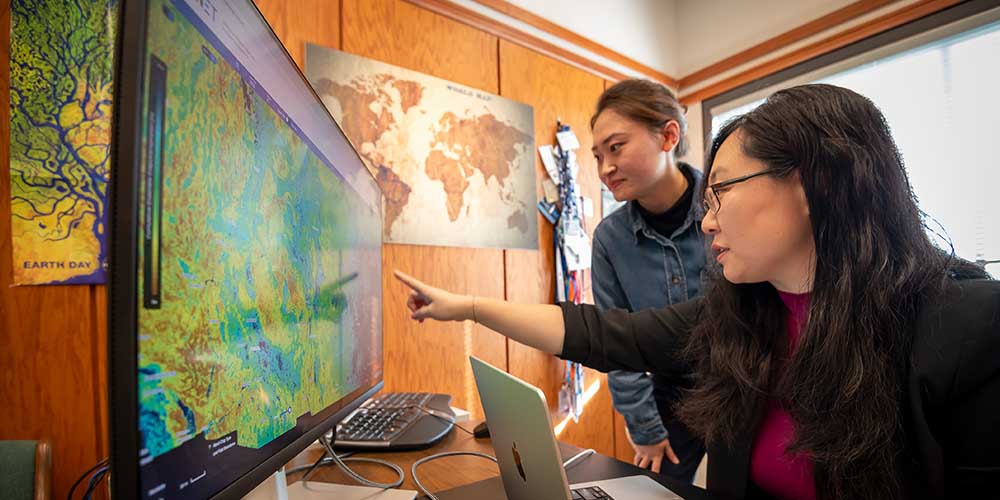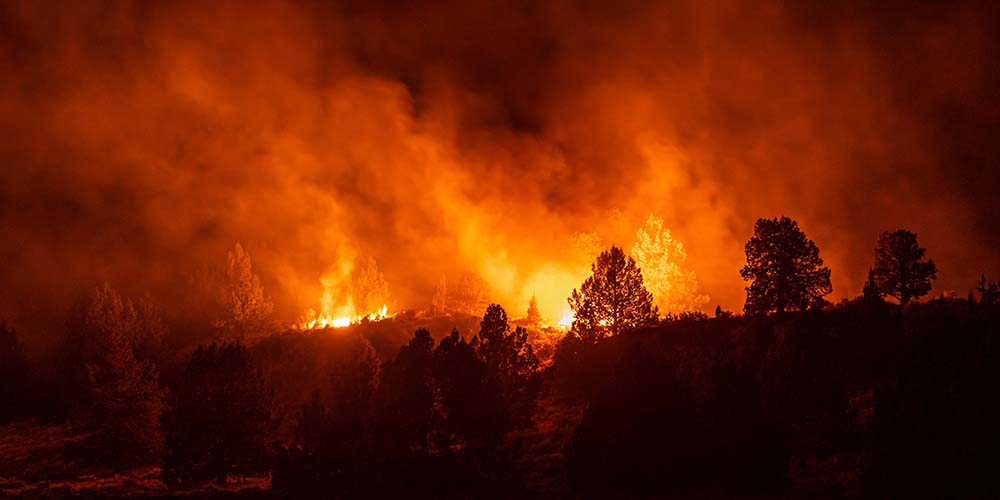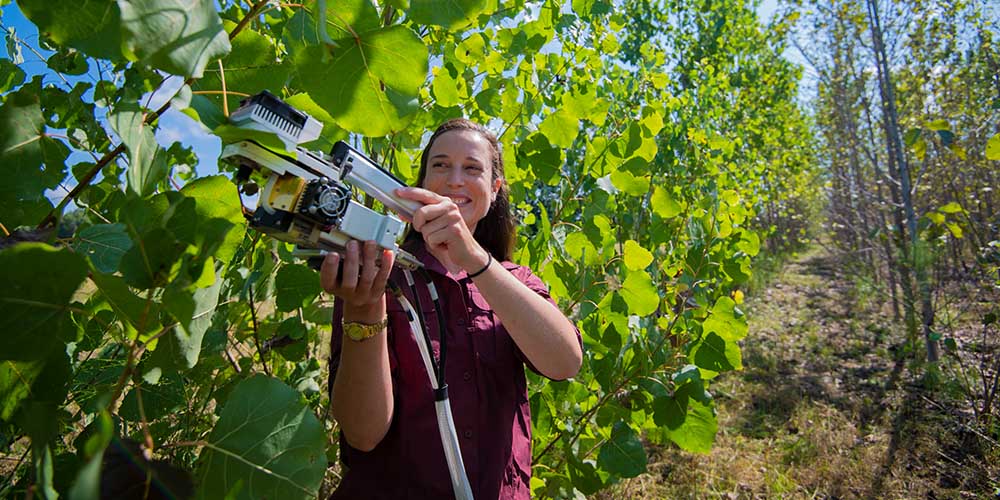Forest Measurements and Spatial Technology Stories

Big Picture
Dr. Yun Yang, an assistant professor at Mississippi State's Forest and Wildlife Research Center (FWRC), is using satellite technology from NASA's Landsat program to address water resource management challenges in the Mississippi Delta. As part of the NASA Acres project, Yang is studying crop water usage and evapotranspiration to help improve groundwater sustainability in this agriculturally important region. The project, which involves over 30 scientists, aims to enhance agricultural strategies and resource efficiency. Unlike commercial enterprises, NASA's commitment to open science ensures that models developed in this project will be publicly available to benefit society. Yang's work was published in prestigious journals and presented globally.
2023

FWRC Scientists Study the Effects of Natural Disturbances on Forest Ecosystems
Wildfires are part of nature's method of bringing balance to ecosystems. However, fire suppression practices combined with expanded human settlement into fire prone territories over the last century have disrupted that balance and exacerbated the damage done by fire. Researchers in the Department of Forestry have studied how evapotranspiration, or water usage by vegetation, is an indicator of an ecosystem's overall health. Working with scientists from the University of California, the team analyzed satellite data from 1985 to 2017 and found that wildfires increased the percentages of evapotranspiration over a 15-year period. They also found that taking forest management actions such as thinning or controlled burns would result in a reduction in evapotranspiration, mitigating the impact of continued drought and future wildfires.
2021

Powering up Renewable Energy in the Southeast
Biomass powers 43 percent of the nation’s renewable energy and FWRC researchers are finding ways to optimize biomass production for landowners in the Southeast. A team led by Dr. Heidi Renninger, associate professor in the Department of Forestry, is studying how to produce better, hardier hybrid poplars harvested for biomass energy. The researchers use precision agricultural tools to measure economic and ecological benefits of growing trees to convent to renewable biofuel and have built a model that quantifies both productivity and ecosystem services these tracts of trees can provide. This research is funded by the U.S. Department of Energy. Collaborators include University of Tennessee and Louisiana Tech University.
Greenwood Resources provided access to the company’s hybrid poplar cuttings.